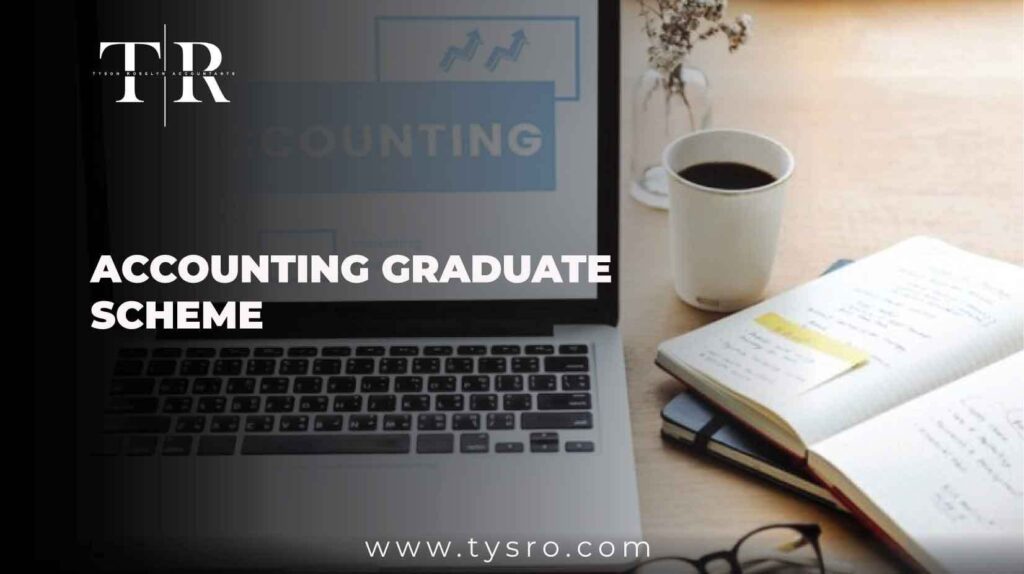Introduction
Choosing the right career path after university can be daunting, especially when it comes to accounting. If you’re an accounting graduate in the UK, you might have heard about the accounting graduate scheme. These programs are tailored to give fresh graduates a head start in the industry. But what exactly are these schemes, and why should you consider joining one? This guide will walk you through everything you need to know, including the benefits, how to apply, and what to expect.
What is an Accounting Graduate Scheme?

An accounting graduate scheme is a structured training program offered by many accounting firms and businesses across the UK. These schemes are specifically designed for recent graduates who have completed an accounting or finance-related degree. They typically last between two to three years and provide a comprehensive introduction to the accounting profession.
Why Choose an Accounting Graduate Scheme?
Choosing a graduate scheme over regular job hunting offers several advantages:
- Structured Learning: Graduate schemes offer a clear, structured learning path. You’ll receive training that aligns with your qualifications and the role’s requirements.
- Professional Qualifications: Many schemes sponsor professional qualifications such as ACCA, CIMA, or ACA, giving you a significant career boost.
- Networking Opportunities: Graduate schemes provide access to a network of professionals, mentors, and peers, which can be invaluable for your career progression.
Anecdote: Sarah, an accounting graduate from Manchester, shares, “Joining a graduate scheme was the best decision I made. Not only did I get professional training, but I also got to work on real projects right from the start. It was challenging, but I felt like I was truly kick-starting my career.”
How to Find the Right Graduate Scheme for You

Finding the right graduate scheme can be overwhelming due to the sheer number of options available. Here’s a step-by-step guide to help you navigate the process:
1. Research the Firms and Programs
Start by identifying the firms that offer accounting graduate schemes. Major accounting firms like PwC, Deloitte, KPMG, and EY are known for their robust programs. However, don’t overlook smaller firms as they often provide equally valuable opportunities.
2. Understand the Requirements
Each scheme has specific requirements, usually including a degree in accounting, finance, or a related field, and sometimes specific A-level grades or UCAS points. Check their official websites or job listings for detailed eligibility criteria.
3. Tailor Your Application
When applying, make sure your application is tailored to the specific firm and role. Highlight relevant skills such as analytical thinking, attention to detail, and proficiency in accounting software like Excel or QuickBooks. Use examples from your university projects, internships, or any part-time work experience.
4. Prepare for the Interview Process
Graduate schemes often have rigorous interview processes, including assessment centers, aptitude tests, and multiple interview rounds. Preparing thoroughly can set you apart from other candidates.
Anecdote: James, who recently secured a spot in an accounting graduate scheme, noted, “The assessment center was the toughest part. We had to work in groups, solve problems on the spot, and present our findings. My advice? Practice, and don’t hesitate to show your personality.”
What to Expect During the Scheme
Once accepted into an accounting graduate scheme, here’s what you can typically expect:
1. Rotational Placements
You will likely experience different areas of the business, such as audit, tax, and advisory services. This rotation helps you gain a broad understanding of the field and figure out which area suits you best.
2. Professional Development and Training
Graduate schemes offer continuous training and support. You’ll attend workshops, online courses, and even one-on-one mentoring sessions. Many schemes also sponsor your studies towards professional qualifications.
3. Real-World Experience
You’ll work on real client accounts and projects. This hands-on experience is invaluable, allowing you to apply theoretical knowledge in a practical setting.
4. Performance Reviews
Expect regular performance reviews. These evaluations help you track your progress, identify areas for improvement, and set goals for the future.
Benefits of Completing an Accounting Graduate Scheme
Completing an accounting graduate scheme sets you up for long-term career success. Some of the key benefits include:
- Faster Career Progression: Graduate schemes often lead to quicker promotions compared to other entry-level positions.
- Higher Earning Potential: Graduates from these schemes usually enjoy competitive starting salaries and annual raises.
- In-Demand Skills: You’ll gain skills that are highly sought after in the accounting industry, such as financial analysis, risk management, and compliance.
Anecdote: Emma, who completed her scheme at PwC, said, “The skills I gained during the scheme were invaluable. I was able to fast-track my career and move into a managerial position within five years.”
How to Make the Most of Your Graduate Scheme Experience
Maximizing your time during the scheme is crucial. Here are some tips:
- Be Proactive: Take initiative, seek out challenging tasks, and don’t be afraid to ask questions.
- Network: Build relationships with your colleagues, mentors, and peers. Networking can open doors to future opportunities.
- Set Personal Goals: Keep track of your achievements and set clear goals for what you want to learn and accomplish.
Conclusion

An accounting graduate scheme is a fantastic opportunity for recent graduates looking to make their mark in the accounting world. With structured training, professional qualifications, and hands-on experience, these schemes provide everything you need to build a successful career.
Are you ready to take the next step? Explore available accounting graduate schemes today and start your journey towards a rewarding career in accounting!
Key Takeaways:
- Accounting graduate schemes provide structured training and professional qualifications.
- Choose the right scheme by researching firms and understanding their requirements.
- Make the most of your experience by being proactive, networking, and setting personal goals.


